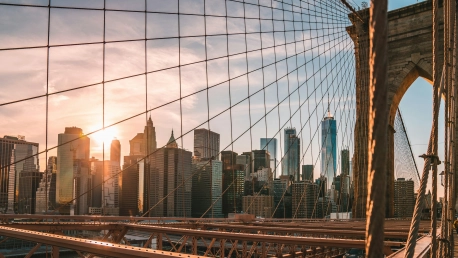New York is embroiled in a legal battle that pits the state’s desire to regulate education against the autonomy of yeshivas, privately-run Jewish religious schools. This contentious issue raises critical questions about the extent of state control over private and religious education and who determines educational content. The outcome could have significant implications for the balance between government oversight and religious educational freedom not just in New York, but nationally. The New York State Education Department’s efforts to impose curriculum standards on yeshivas has sparked a broader debate about educational regulation and quality in private schooling. As both sides grapple with these complex issues, the case may set a precedent for the role of government in private education.
Legal Battle Lines Are Drawn
The New York State Education Department is embroiled in a legal contest that underscores fundamental disagreements over the reach of its regulatory power. On one side, the Department holds that all children, regardless of the schools they attend, are entitled to a quality education comparable to that offered in public schools. In this view, the state has a duty to safeguard educational standards across the board, even if it means intruding into the domain of private religious education.On the opposing side stand the yeshivas and their advocates, who argue that the state’s proposed regulations intrude on religious liberty and the rights of parents to control their children’s education. Organizations like PEARLS, Torah Umesorah, and Agudath Israel are not merely defending individual schools; they represent a larger front determined to protect the independence and distinctive ethos of religious educational institutions against what they perceive as overreach by the state.
Examining Curriculum and Teacher Oversight
The crux of the dispute rests with a set of regulations that would empower local school districts to vet yeshiva teachers and review the curriculum, raising the specter of public interference in private religious schooling. Yeshivas, with their rigorous religious content, view these interventions as a threat to their educational prerogatives and a dilution of their traditions. They argue that their pedagogical choices, especially the emphasis on religious study, form the cornerstone of their identity and purpose.State advocates counter that such oversight is a prerequisite to ensure that basic educational standards are met across the spectrum of private and public schooling. They assert that while religious and moral education is indeed valuable, it should not come at the expense of a comprehensive curriculum that equips students for a broad range of future opportunities and societal engagement.
Implications for Schools and State Aid
The ramifications of this dispute extend deep into the financial fabrics of private schools. Central to the discord is whether state educational standards should determine the flow of state aid to private institutions. The state maintains that in order to benefit from public funds, schools must prove the substantial equivalency of their education to that of public schools.Defense advocates, however, argue that state assistance should be linked to the student rather than to the educational programming of schools. They contend that the withdrawal of aid based on non-compliance with state curriculum guidelines could amount to an indirect method of state control over religious education, which they view as a threat to their independence and viability.
Judicial Deliberation and Potential Consequences
In tackling the nuanced balance between private religious education and state regulation, the judiciary faces a crucial task. They must scrutinize parents’ rights to direct their child’s religious upbringing against the state’s duty to uphold a standard of education. The justices’ verdicts will indelibly impact the educational framework for the foreseeable future.The courtroom serves as the battleground where legal texts meet the ideals behind educating a diverse populace. The conclusions drawn from these legal deliberations will likely redefine the regulatory environment for private educational institutions and dictate the level of governmental intervention permissible. These decisions have the potential to reshape the interface between religion, education, and state authority, steering the future course of private schooling in the United States.
Broader Impact On Nonpublic Education
Observers of the current legal proceedings recognize the potential for widespread impact, particularly on the educational practices of all nonpublic schools in New York. Organizations like YAFFED argue for the necessity of establishing minimum educational standards across these institutions to guarantee quality education for every child, highlighting the case’s significance beyond Jewish communities.The challenge lies in balancing educational quality with the preservation of religious liberty. Achieving this equilibrium is vital as it could significantly influence the balance between the state’s role in education and the freedoms that characterize the American educational landscape. The outcomes could shape the future of nonpublic education policy, calibrating the delicate interplay between diversity, educational adequacy, and the state’s regulatory obligations.









